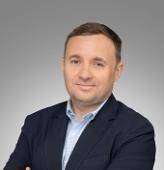Konrad GRABISZEWSKI
Professeur Associé (Education Track - Campus Doha)
Economie et Sciences de la Décision

Biographie
Dr. Konrad Grabiszewski holds an MPhil in Economics from the University of Amsterdam, an MSc in Mathematics from the Courant Institute at New York University, and a PhD in Economics from the Stern School of Business at New York University. From 2008 to 2015 he was a faculty member at the Department of Business Administration at ITAM; a top business school in Mexico. Then, he has been at the Department of Economics at the University of Miami.
In his research, Dr. Konrad research focuses on understanding how people make decisions in various context. He is an expert in game theory and decision theory. His research is both theoretical and empirical. He is a co-creator of the mobile experiment “Blues and Reds” – a free game available globally on smartphones and tablets – whose objective is to understand how people reason in interactive situations. Currently, he is working on the second mobile experiment. Dr. Konrad also works on questions like economic espionage, terrorism, and government regulation. His research has been published in Journal of Economic Theory, Theory and Decision, B.E. Journal of Theoretical Economics, and Defence and Peace Economics.
Dr. Konrad has been teaching economics and strategy at the undergraduate, Master, MBA, and Executive MBA levels. Being very passionate about teaching, he has won several teaching awards.
Articles scientifiques
Review of Law and Economics, À paraître, (in coll. with A. HORENSTEIN)
Games and Economic Behavior, janvier 2025, vol. 149, pp 96-111, (in coll. with A. HORENSTEIN)
Review of Law and Economics, mars 2024, vol. 20, n° 1, pp 65-82, (in coll. with A. Horenstein)
Journal of Behavioral and Experimental Economics (formerly the Journal of Socio-Economics), juin 2022, vol. 98, pp 101876, (in coll. with A. Horenstein)
PLOS One, 2022, vol. 17, n° 4, pp e0266366, (in coll. with A. Horenstein)
Journal of Economic Behavior and Organization, août 2020, vol. 176, pp 634-652, (in coll. with A. Horenstein)
Defence and Peace Economics, 2019, vol. 30, n° 3, pp 269-277, (in coll. with D. Minor)
Journal of Conflict Resolution: research on war and peace between and within nations, septembre 2019, vol. 63, n° 8, pp 1923-1938, (in coll. with P. Dev)
The B.E. Journal of Theoretical Economics (Research, anciennement Frontiers et Advances), 2016, vol. 16, n° 2, pp 437-454,
Theory and Decision, avril 2015, vol. 78, n° 4, pp 629-637,
Cahiers de recherche
SSRN Electronic Journal , 2024
University of Miami Business School Research Paper Series , 2023
University of Miami Business School Research Paper Series , 2019
SSRN Electronic Journal , 2019
SSRN Electronic Journal , 2018
Cas pédagogiques
Articles scientifiques
Games and Economic Behavior, janvier 2025, vol. 149, pp 96-111, (in coll. with A. HORENSTEIN)
Review of Law and Economics, mars 2024, vol. 20, n° 1, pp 65-82, (in coll. with A. Horenstein)
Journal of Behavioral and Experimental Economics (formerly the Journal of Socio-Economics), juin 2022, vol. 98, pp 101876, (in coll. with A. Horenstein)
PLOS One, 2022, vol. 17, n° 4, pp e0266366, (in coll. with A. Horenstein)
Cahiers de recherche
SSRN Electronic Journal , 2024
University of Miami Business School Research Paper Series , 2023
University of Miami Business School Research Paper Series , 2019
SSRN Electronic Journal , 2019
Cas pédagogiques
Formation
-
Ph.D., Economie, NYU Stern School of Business - Etats-Unis
Nominations académiques
Responsabilités académiques à HEC
- 2022- Professeur Associé (Education Track - Campus Doha), Economie et Sciences de la Décision HEC Paris